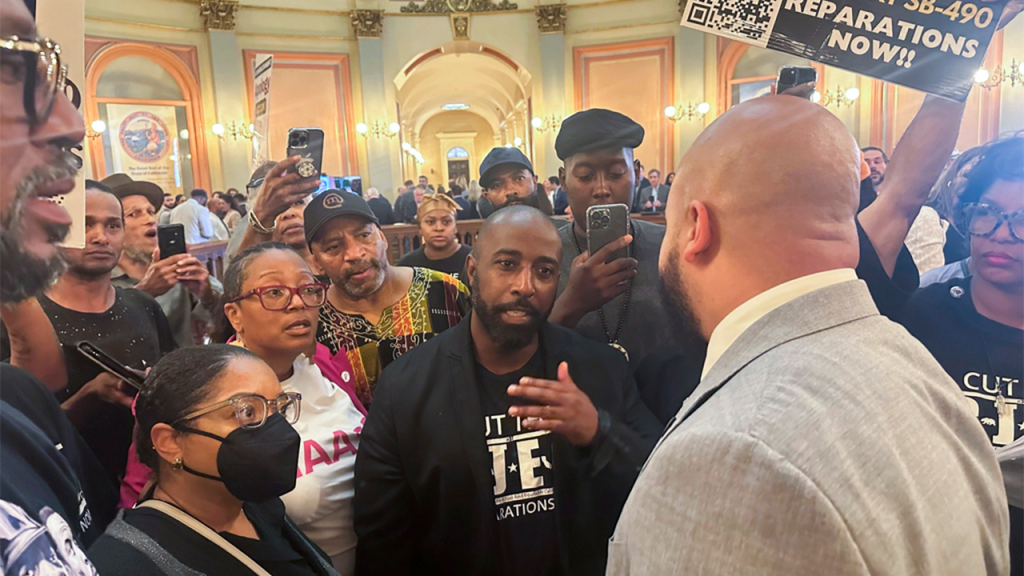Two proposed reparations-related bills for the descendants of enslaved Black Americans failed to pass in the California legislature, as backers decided not to move forward with the legislation. Authored by Democrat state Sen. Steven Bradford, Senate Bill 1331 aimed to create a state fund for reparations, while Senate Bill 1403 would have established a state agency to oversee these efforts and determine eligibility. While California did pass other bills addressing racial injustices, none provided direct payments to African-Americans. Critics speculated that the bills were not advanced due to concerns that Governor Gavin Newsom would veto them.
California Legislative Black Caucus Chair Assemblymember Lori Wilson stated that the Caucus made the decision to pull the bills, acknowledging that additional work was needed before they could move forward. The Caucus cited challenges and the need for further development of the proposals. They promised to continue working on the bills and reintroduce them in the next legislative session. The decision not to advance the bills this year was final, with the bill being put on hold until next year. A group of protesters supporting reparations gathered at the Capitol to demonstrate against the delay.
Despite efforts to push for a vote on the reparations bills, California Assemblymember Bill Essayli’s motion to do so was not seconded by any other lawmaker. Essayli criticized Democrats for not bringing the bills up for a vote when faced with the opportunity. He emphasized the importance of a public debate and recorded vote on the issue of reparations. Meanwhile, the coalition for a Just & Equitable California accused the California Legislative Black Caucus of betraying their cause by not bringing the bills up for a vote despite having enough support to pass them.
The California governor has not taken a public stance on the reparations-related bills, but he did sign a budget in June that included funding for reparations legislation. The budget allocated up to $12 million for reparations but did not specify how the money would be used. Newsom’s administration has expressed opposition to some of the proposed bills, with the governor having until September 30 to decide on the remaining bills that were passed. Newsom has previously expressed his engagement with the issue of reparations and his collaboration with the Black Caucus on related matters.
While efforts to pass reparations-related bills for descendants of enslaved Black Americans failed in the California legislature, supporters remain committed to the cause. The bills put forth by Democrat Sen. Steven Bradford aimed to create a new state fund for reparations and establish a state agency to oversee the process. Despite the setback, advocates continue to push for reparations legislation, with plans to reintroduce the bills in the next legislative session. The issue remains contentious, with critics calling for a public debate and recorded vote on the issue. The California governor has not taken a firm stance, but has shown some support for reparations measures in the past through budget allocations. The outcome of the failed bills has sparked protests and calls for accountability from lawmakers.


